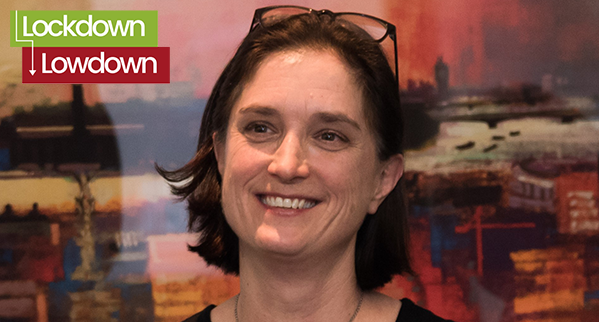Since 2017 Vicky Browning has been CEO of ACEVO, the Association of Chief Executives of Voluntary Organisations – one of the leading bodies in the sector. Before that, she was director of CharityComms, the fantastic membership body for communications professionals working in charities. Amazon PR has always been involved with CharityComms, and Vicky and Louise worked on a project together a few years ago. We have been very keen to hear her thoughts on the likely effects of Covid-19 on the sector.
Impact of lockdown on charities
Louise: Anyone connected with the voluntary sector will know that because fundraising events have been cancelled and charity shops were closed for months, lockdown has caused a massive shortfall in charities’ income. NCVO (the National Council for Voluntary Organisations) estimated this at £4bn for the first 12 weeks of lockdown alone. The government has provided a £750m support package for UK charities. What has been the short-term impact on charities?
Vicky: In recent months charities have responded to the urgent needs of people across the country quickly, effectively and without question. Putting all our efforts into helping our communities, we have put our own survival on the line. With little chance to fundraise, a loss of income from trading and providing services, and much greater demand, many charities are now in real danger of having to close completely.
“But the immediate response to coronavirus is only the start.”
People across the country know that charities are #NeverMoreNeeded than now and for the foreseeable future. And it’s not just the response to the pandemic where charities are essential – from the dignity offered by hospice workers to those at the end of life, to the safety provided by domestic abuse organisations and the community shown in mutual aid groups and foodbanks.
Lockdown has also thrown a light on the things we value most, things that are too often dismissed as luxuries but are instead the mark of a well, healthy, happy society. Theatres, dance, access to green spaces, museums, community choirs, the local Scout, Woodcraft folk or Girlguiding troop – these are all a vital part of civil society. The work charities do helps change people’s lives, and our communities, for the better and we need to make sure that can continue.
Several of our clients and contacts are looking now at the longer-term impacts and the likelihood of a protracted and deep recession. Do you think some parts of the voluntary sector will face greater challenges than others?
The long-term impact of this crisis will be felt right across the sector. Charities have been encouraged over recent years to diversify their income, and many have moved away from reliance on grant funding to generating their own income, often through social enterprise and using assets such as buildings to house community services or cafes and shops which generate funds in normal times. These have all been hard hit, and any continuation of lockdown measures will exacerbate this. Meanwhile, those reliant on community fundraising such as live sporting events or coffee mornings have seen these opportunities vanish. And even those whose income comes from delivering public services commissioned by local authorities will be affected if the national economic crisis means a reduced settlement from Whitehall for already cash-strapped local government.
It seems to me that some organisations, having survived the immediate crisis and despite many persistent challenges, are beginning to pick up and revisit their planned activity. We are seeing new briefs and some of those charities that are in a position to do so are restarting some of their ‘normal’ work. In talking to your members – leaders of charities of all sorts – would you say that most are now focused on planning for the future, or are many people in fact still in reactive, crisis-handling mode?
We’re seeing a bit of both. Charities are definitely looking at restarting as much activity as they can where delivery has stopped, and reviewing and enhancing the new methods of delivery which enabled services to continue where they have kept going. CEOs are thinking about which elements of the way things happened in lockdown they want to keep, which of the old ways of working they want to ditch and what to reinstate, and how they can build back better. But at the same time, the demand for services is still there – and likely to keep rising as the economy is further impacted – so all this thinking is running in parallel to the continuing response to the ongoing challenges.
How do charity leaders review their organisational strategies when there’s still so much uncertainty?
Uncertainty is the new normal, but this crisis has shown how innovative and flexible charities can be. One of the fundamental requirements of any organisational strategy going forward has to be the ability to flex and adapt as circumstances change. Focusing on the purpose – the why – of what we do is core. The what and how may have to change as circumstances dictate. At the same time, as CEOs we need to think about how we create structures and processes that allow us to deal with crisis as a constant, without burning out ourselves or our teams.

